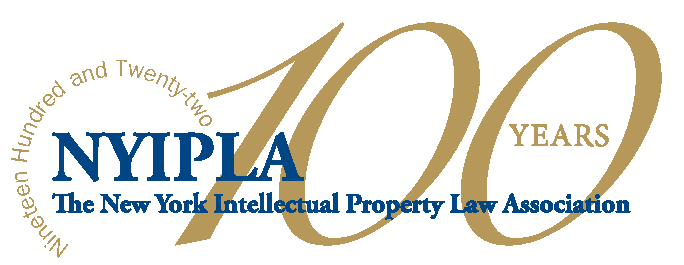NYIPLA Urges Supreme Court to Provide Guidance on Judicial Review and Claim Construction for IPR Proceedings.
Dorothy Auth, President of the NYIPLA, as well as Eugene Gelernter, Irena Royzman, Jason Vitullo, Charles R. Macedo and David Goldberg were authors on the brief. Charles R. Macedo, Irena Royzman and David Ryan are Co-Chairs of NYIPLA’s Amicus Briefs Committee and Robert Isackson is the NYIPLA Board Liaison.
On Monday, November 9, 2015, the New York Intellectual Property Law Association (“NYIPLA”) filed an amicus brief in support of a petition for a writ of certiorari by Cuozzo Speed Technologies, Inc. urging the Supreme Court to provide guidance on judicial review of ultra vires action by the PTO in instituting inter partes review (IPR) proceedings as well as the appropriate claim construction standard for IPRs. Both issues sharply divided the Federal Circuit, with the Panel splitting 2-1 over a vigorous dissent by Judge Newman, and the Federal Circuit then denying a petition for rehearing en banc by a vote of 6-5, over multiple dissents. In re Cuozzo Speed Techs., LLC, 793 F.3d 1268 (Fed. Cir. 2015) (“Cuozzo”), reh’g denied, 793 F.3d 1297 (Fed. Cir. 2015).
On the issue of judicial review, the NYIPLA asks the Supreme Court to “clarify that PTO decisions invalidating patents on grounds that exceed the PTO’s statutory authority are subject to judicial review, not immune from it.” The NYIPLA explains that the provision relied upon by the Panel majority to deny judicial review prohibits only interlocutory appeals of institution decisions, and “Congress did not intend the prohibition on interlocutory review set out in § 314(d) to serve as a blank check that would allow the PTO to freely rewrite its statutory authority, and to institute and decide IPRs on grounds not permitted by the AIA.” The NYIPLA argues that “[t]he Panel majority’s holding turns the statutory limits on the PTO’s ability to institute an IPR into a toothless nullity, and contravenes precedent of [the Supreme] Court establishing a strong presumption in favor of judicial review of agency action.”
The NYIPLA also urges the Court to grant Cuozzo’s petition with respect to the appropriate claim construction standard for IPR proceedings, explaining that “[t]his too is a critical issue on which the Federal Circuit is sharply divided.” The Panel majority concluded that it was appropriate for the PTO to apply the “broadest reasonable interpretation (‘BRI’)” standard that the PTO uses during patent prosecution, whereas in dissent Judge Newman asserted that the PTO should apply the same claim construction standard that is used in district court litigation, i.e., the “ordinary meaning” pursuant to Phillips v. AWH Corp., 415 F.3d 1303 (Fed. Cir. 2005) (en banc).
The NYIPLA explains that the “Court’s consideration of this question should be guided by the following inquiry: in an IPR proceeding, does a patent owner have a sufficient opportunity to amend a claim in the event that the PTO’s construction of the claim will render it invalid?”
The NYIPLA notes that the BRI standard is used during the “iterative process of patent examination” since “before a patent is granted the claims are readily amended as part of the examination process.” Conversely, when amendments are not possible – such as in district court litigation and during PTO proceedings involving expired patents – the “ordinary meaning” is used to assess validity. The NYIPLA observes that while amendments are “sometimes possible” in IPRs, these proceedings are “unlike original examinations” since “a patent owner cannot freely amend claims, but rather must move to amend and only one such motion is allowed as of right.”
As a result, the NYIPLA states that the question for IPR proceedings is whether patent owners have a “viable opportunity to amend the claims that is sufficient to warrant application of the BRI standard, as opposed to the Phillips standard that applies in district court litigation and other circumstances in which there is no opportunity for amendment, or some other claim construction standard that the Court concludes is appropriate in light of the unique nature of IPR proceedings.” The NYIPLA emphasizes that the appropriate claim construction standard for IPR proceedings is “a question of great significance, and guidance from this Court is sorely needed.” The Supreme Court case is captioned Cuozzo Speed Technologies, LLC v. Michelle K. Lee, Under Secretary of Commerce for Intellectual Property and Director, Patent and Trademark Office, No. 14-446.
